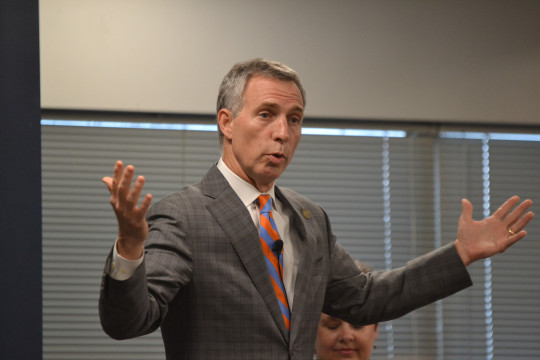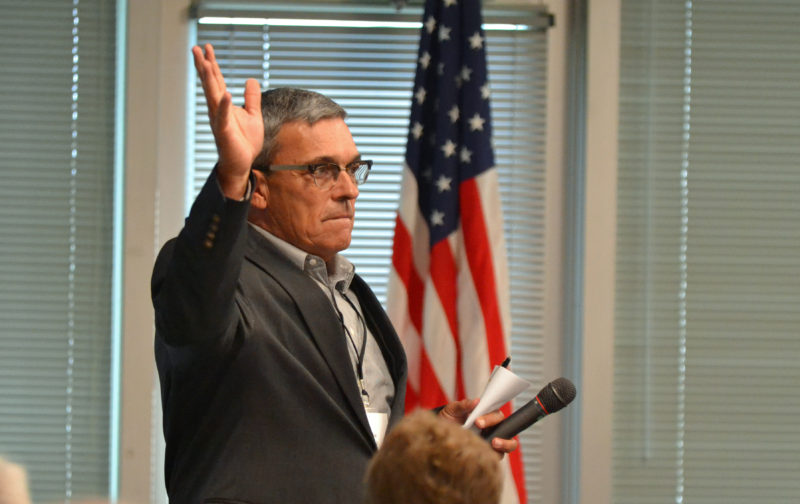JEFFERSON CITY, Mo. – The Missouri Farm Bureau Federation hosted the “Rural Communities Matter” conference Wednesday at their headquarters on the outskirts of Jefferson City. The group hosted three panels to discuss important issues affecting the parts of Missouri outside the I-70 beltway.
The conference featured guest speakers, experts and government employees in the fields of communications, transportation and healthcare with a focus on making sure rural communities could keep up with urban and suburban centers around the state.
“We decided there were issues that were very important to our members,” President of the MFBF Blake Hurst said. “Most of our folks, our members live in rural areas. they live in small towns, they’re farmers, and so we decided we needed to get some folks together to talk about it.
“Every place in the state has challenges, but all across Missouri, the rural areas have a specific set of challenges that comes from our isolation, from our distance from urban areas from our distance from media centers and those can be advantages if we use them that way, but it can also be a problem.”
Members of MODOT and the Highways and Transportation Commission reported on the state of Missouri’s roads, what HTC Chairman Steve Miller called a “transportation crisis,” and the effect that a lack of funds could have on rural Missouri roads. Presidnet and CEO of the Jordan Valley Community Health Center Brooks Miller; Dr. Stanley Horner, MD and Dennis Tibben of the Iowa Medical Society reflected on new and different methods of care with a focus on preventative care in rural areas

Christopher Collins and Anita Dunning from the Rural Development branch of the U.S. Department of Agriculture spoke about connecting more communities to broadband internet that has the same speed and quality as in urban areas.
Many members of the General Assembly, notably representatives from rural communities, attended at least part of the conference. Rep. David Wood, R-Versailles, noted that while traditional means of infrastructure are important, broadband internet access for rural communities was the next incarnation of essential infrastructure.
“It used to be transportation,” he said. If you had good roads, you could get a factory in. But now if you don’t have good connection to the rest of the world through the internet, we can’t bring in business. Nobody would want to come if they can’t stay connected, so until we expand the broadband capabilities for our rural communities, we don’t expand anything.
“It’s essential, coming from an education background, to get this to our rural schools. It’s the big turning point we’re going to have in the rural part of America.”
Rep. Glen Kolkmeyer, R-Odessa, paid particular attention to the transportation report. He found Miller’s request to avoid parochialism, a division of interests between urban and rural communities, refreshing and much better than the prior alternative where legislators determined funding projects for the entire state.
“One of the things I really agree with is the way the Commission set up the regions and the areas and TAC [Transportation Advisory] committees, so it’s the local communities, the local counties that dictate where the major projects are funded,” Kolkmeyer said. “I would hate to go back to the old system where each legislator, all 200 legislators in the building… wanted their bridge and their highway and their community four-lane highway.”
Bob Young, the chief economist of the American Farm Bureau Federation, agreed in his presentation that many of these services bolster farm economies and thus, economies in rural communities.
For Hurst, the attention paid by elected officials to his constituents was encouraging.
“We have great representation in rural Missouri,” Hurst said. “I’m glad they’re here to let them hear the things that are on our member’s minds.”



